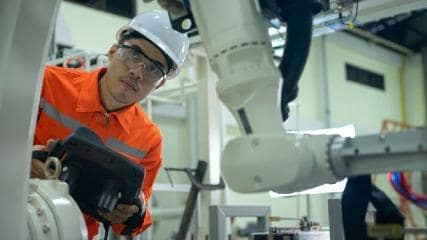
German M&A Trends in Industrial Manufacturing and Automotive Sectors: 2022 Mid-Year Update
28 September, 2022
Global M&A activity has slowed in 2022 as companies across the industrial manufacturing and automotive (IM&A) sectors are facing growing uncertainty. Headwinds that we noted in our 2022 Outlook—supply chain disruption, commodity price increases, skilled labour shortages and the global semiconductor shortage—have all intensified and may create both challenges and opportunities for dealmakers in the second half of the year.
Lockdowns related to COVID-19 in a number of Chinese cities have reduced manufacturing output and disrupted exports from the Asia Pacific region. At the same time, the Russia–Ukraine conflict is exacerbating already stressed supply chains, and corporates’ actions to exit from Russian operations or deal with sanctions are inevitably diverting management focus from other strategic priorities, including M&A. We expect this to continue, at least in the short term.

Dealmakers focus on technology, workforce, supply chain and ESG
Volatile and high energy and commodity prices continue to disrupt industrial manufacturing and automotive sectors, both of which are large consumers of energy and raw materials. Other sectors, such as business services and aerospace and defence, appear to be less impacted by the current headwinds. As a result, we expect the latter to remain attractive sectors for M&A activity.
Business leaders across all IM&A sectors who see technology as central to gaining a competitive advantage will continue to engage in M&A. IM&A companies have long been buyers of technology assets, and we are now seeing more examples of greater convergence across sectors. For example, the automotive and energy sectors are working closely together to develop technologies focused on e-mobility, including electric, hydrogen-powered and autonomous vehicles, batteries, and charging stations. As business leaders continue to look to technology to transform their business models, we expect further tech-related deals in the areas of automation, digitalisation, next-generation materials and production powered by renewable energy sources.
“The importance of digitalisation and the race to exploit emerging technologies within the industrial manufacturing and automotive sectors will continue to create opportunities for M&A over the remainder of 2022.”
With wage inflation, skills shortages and an increased stakeholder focus on environmental, social and governance (ESG) issues such as diversity, inclusion and well-being, IM&A companies are placing a greater focus on their people. Consequently, dealmakers are making workforce matters a priority area of focus during due diligence, as the success of any deal is highly dependent on having access to the right talent.
Another key M&A trend in the second half of 2022 will be portfolio optimisation, as corporations review their business activities and consider divesting non-core assets to focus investments on growth areas of their business portfolio. Moreover, we expect the current market uncertainties to drive distressed M&A, especially in automotive-component and energy-intensive industrial niches in which value preservation will be a constant focus in the second half of the year.
“While M&A has softened in 2022, we remain optimistic about portfolio optimisation by big corporations seeking to valorise non-core assets, and deal opportunities in the business services sector led by private equity dry powder.”


Mid-year M&A outlook for industrial manufacturing and automotive
There’s no doubt that recent global macroeconomic and geopolitical events have cast a shadow over the growth prospects and profitability of many IM&A sectors. However, business leaders are focused on value creation, capital remains available for M&A, and we are optimistic that demand for technology-enabled and data-driven assets will ensure a healthy level of deal-making for the remainder of 2022.
















